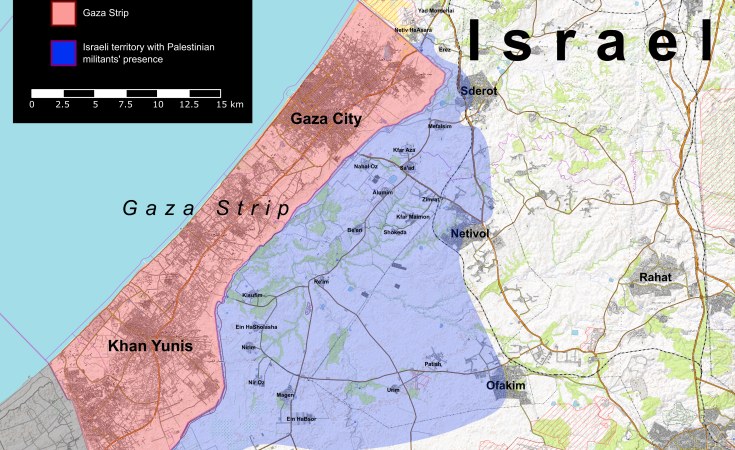The Israel-Palestine conflict, an enduring and deeply entrenched dispute, remains a source of international concern and debate.
With roots stretching back over a century, this conflict has defied easy resolution and continues to be marked by competing national aspirations, territorial disputes, and historical grievances.
This analytical news article, delves into the key factors that contribute to this complex and sensitive issue.
Territorial Disputes: At the heart of the Israel-Palestine conflict lie territorial disputes. Israelis and Palestinians both lay claim to the same land, particularly in the West Bank, East Jerusalem, and the Gaza Strip. These disputes have resulted in decades of negotiations, stalled peace processes, and physical barriers, such as the West Bank barrier, which have further fragmented the region.
Historical Factors: The historical dimensions of this conflict are deeply intertwined with the late 19th and early 20th centuries when Jewish immigrants began moving to Palestine, then under Ottoman rule. The tension escalated with the establishment of Israel in 1948, known as the Nakba (catastrophe) to Palestinians, which resulted in the displacement of hundreds of thousands of Palestinian Arabs.
Refugees and the Right of Return: The issue of Palestinian refugees remains a contentious point of contention. Palestinians and their descendants who were displaced in 1948 and 1967 continue to seek recognition of their right of return to their ancestral homes, while Israel maintains that such a move would jeopardize its Jewish majority.
Religious and Cultural Tensions: Jerusalem, a city of profound religious significance for both Jews and Muslims, adds another layer of complexity to the conflict. Disputes over access to religious sites, most notably the Temple Mount/Haram al-Sharif, have sparked violence and heightened tensions repeatedly.
Security Concerns: Israel has consistently cited security concerns, including terrorism and rocket attacks from Gaza, as reasons for military operations and restrictions in the Palestinian territories. These security concerns have led to a cycle of violence that further complicates peace efforts.
International Involvement: The involvement of regional and global powers, including the United States, European Union, and various Middle Eastern countries, has played a significant role in perpetuating the conflict. Diplomatic, financial, and military support from these external actors have often shaped the course of events in the region.
Internal Political Divisions: Internal divisions among Palestinians have added complexity to efforts at achieving a unified approach to peace negotiations. The West Bank is governed by the Palestinian Authority, while Gaza is controlled by Hamas, creating a fragmented Palestinian leadership.
Conclusion: The Israel-Palestine conflict is a multifaceted and deeply sensitive issue with no easy solution. Decades of negotiations, peace initiatives, and international efforts have yielded limited progress. Understanding the historical, territorial, and cultural dimensions, along with recognizing the security concerns of both parties, is crucial for any meaningful path towards a lasting resolution. Achieving a sustainable peace in this region remains a formidable challenge, but one that continues to be of paramount importance for global stability and the well-being of the people living in the area.


